Blackmarket of green ideas at Musée de l’Homme
Published 24 November 2015 by Nicolas Barrial
The Blackmarket is a performance on the border between art and media experience. On November 21, the Paris edition brought together some 50 experts around the theme of Anthropocene at Musée de l’Homme. Each one of them had a one-on-one rendez-vous with the public.
On Saturday, November 21, around 6:30 pm, a crowd braved the cold just outside the doors of Musée de l’Homme at Trocadéro in Paris. One line was reserved for experts, the other for the general public. Together, they had an appointment at the Blackmarket for Useful Knowledge and Non-Knowledge, a concept developed by the German playwright Hannah Hurtzig, founder of Mobile Academy Berlin. Since 2004, she has been touring her Blackmarket around the world, as a method of apprehending knowledge based on individual conversations between learned and laypeople.
The author explains that this highly theatrical format favors the transfer of skills through a hallucinatory process… It’s a tempting promise, which has already travelled through a number of cities. In Paris, leading up to COP21, the chosen theme of “On Becoming Earthlings” added an esoteric layer to the event. What does it mean to live in the Anthropocene, this new era where humans fully influence the destiny of our planet and its climate?
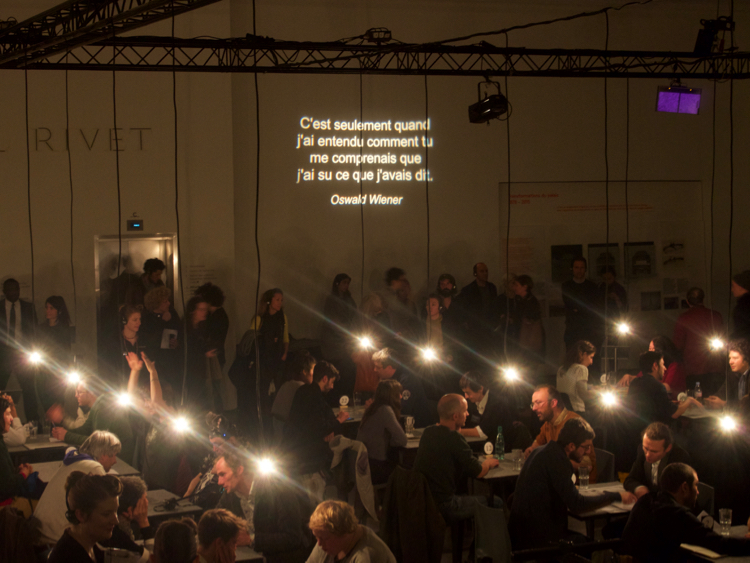
At exactly 7 pm, the doors of Musée de l’Homme swung open, as staff instructed the public and the 50 “expert” scientists, philosophers and writers to use opposing staircases of Palais de Chaillot’s Passy wing. They would soon be meeting for three rounds of individual conversations, or 150 dialogues intended to “shrink and expand the human”, according to the program.
As we declared our identity, we were already admiring the agora where the dialogues would take place: under a magnificent atrium, the “science balcony”, rows of perfectly aligned tables, each lit by a bulb emitting a very bright light, all surrounded by tiered seating. In the center reigned a gong. What mass, what secret society were we about to participate in?
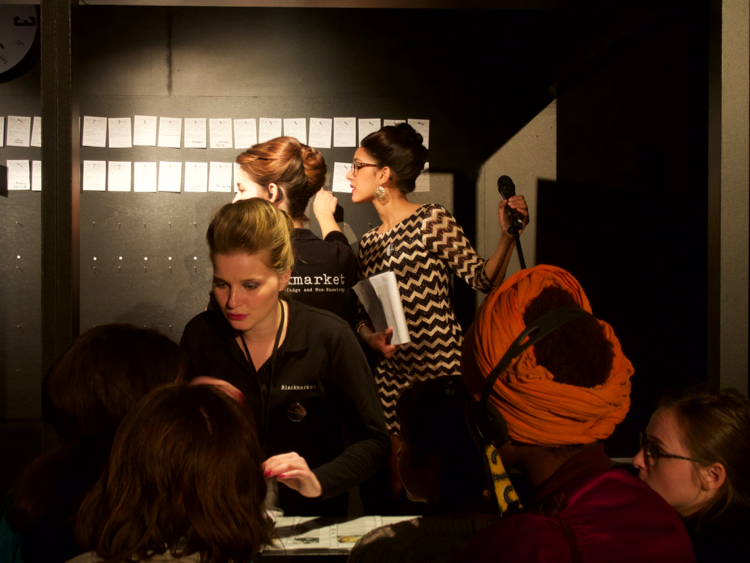
A flat voiceover invited us to register to meet the specialist of our choice. In the form of a symbolic transaction—it was a black market, after all—“clients” were asked to bring presents as exchange currency. Bottles of wine, books, chocolate, anything that the pagan gods of knowledge could feast upon. I decided to wait, because while Blackmarket was timed and orchestrated like a theatrical performance, it allowed several different ways of participating. One of these was through headphones that remotely eavesdropped on the intimate conversations at certain tables.
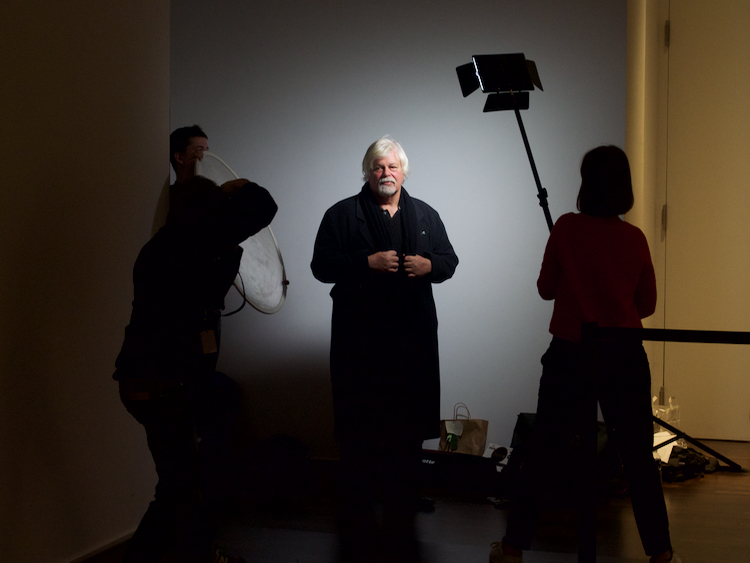
As a flickering light marked the start of the first round, I put on the headphones and started to flip through the channels. I looked around, searching for the source of the sound. The confusion is part of the method, where experts disappear behind their expertise, and some of the laypeople turn into experts: “CO2 levels have never been higher… Yes, but only in human memory. Be careful not to confuse the scales. But I’m not saying that the levels aren’t increasing,” said French geologist Patrick De Wever, seemingly to correct himself, so as not to be accused of being a climate-change sceptic.
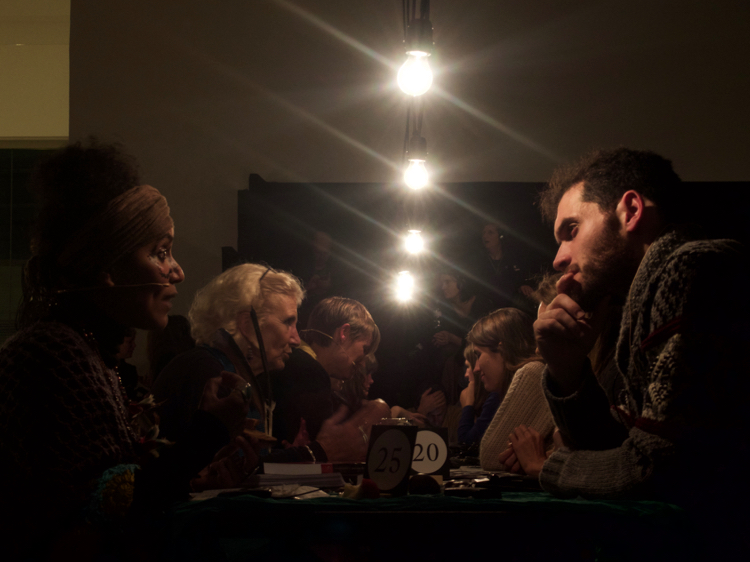
One audio channel away, someone asked: “Can insects be used as currency?” “Yes,” the expert answered. “There are people who collect them obsessively. Take butterflies, they have an intrinsic value and an optional value.”
I was also fluttering around, thanks to my seated avatars. I listened to the landscape artist Ingrid Paola Amaro: “I saw that we have seed banks to preserve nature in the future, but what is nature and what is the future?” And: “I hate the way we weed our gardens, its the same principle that rules over humans at the borders.” “I make it a point to let thistles bloom in my garden.”
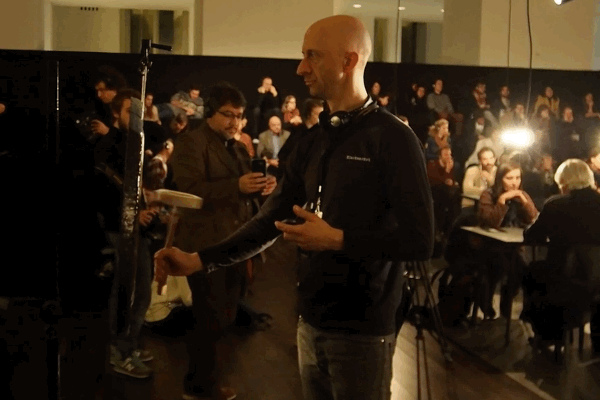
The infamous gong sounded. As a new session began, I decided to go from virtual audio navigation to one-on-one. A hostess gave me a catalogue. In the section “artificial intelligence”, I saw Marie Lechner, journalist, researcher in media archaeology and presented as “botanist in the Média Médiums research project”. She chose to talk about bots, those digital automats that live on the Internet. A botanist talking about bots? Sign me up!
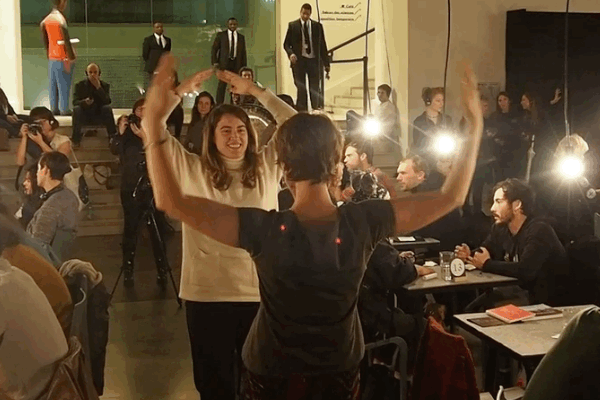
Face to face, in 30 minutes, Marie Lechner introduced me to a real bestiary of bots. Sometimes mischievous, sometimes worrisome, bots, it seemed to me, were trying to rob us of our personal information, our jobs and even our human identity. I recalled part of a dialogue I had heard just before, about animism, the belief that not only living beings but also objects have souls. Was there a kind of animism in the intentions we lend to bots? The Blackmarket was working its magic—I found myself being cultivated, like a plant, in Hannah Hurtzig’s strange agora.
And what about ecology? A philosopher crossed in the informational flow of my headphones echoed this question: “Entering the Anthropocene showed that it no longer made sense to separate nature and society. Let’s create a link of responsibility.” Now I’m ready for COP21.
Hannah Hurtzig presents the Blackmarket concept on Arte in 2011
More on the Blackmarket for Useful Knowledge and Non-Knowledge No. 18: On Becoming Earthlings
